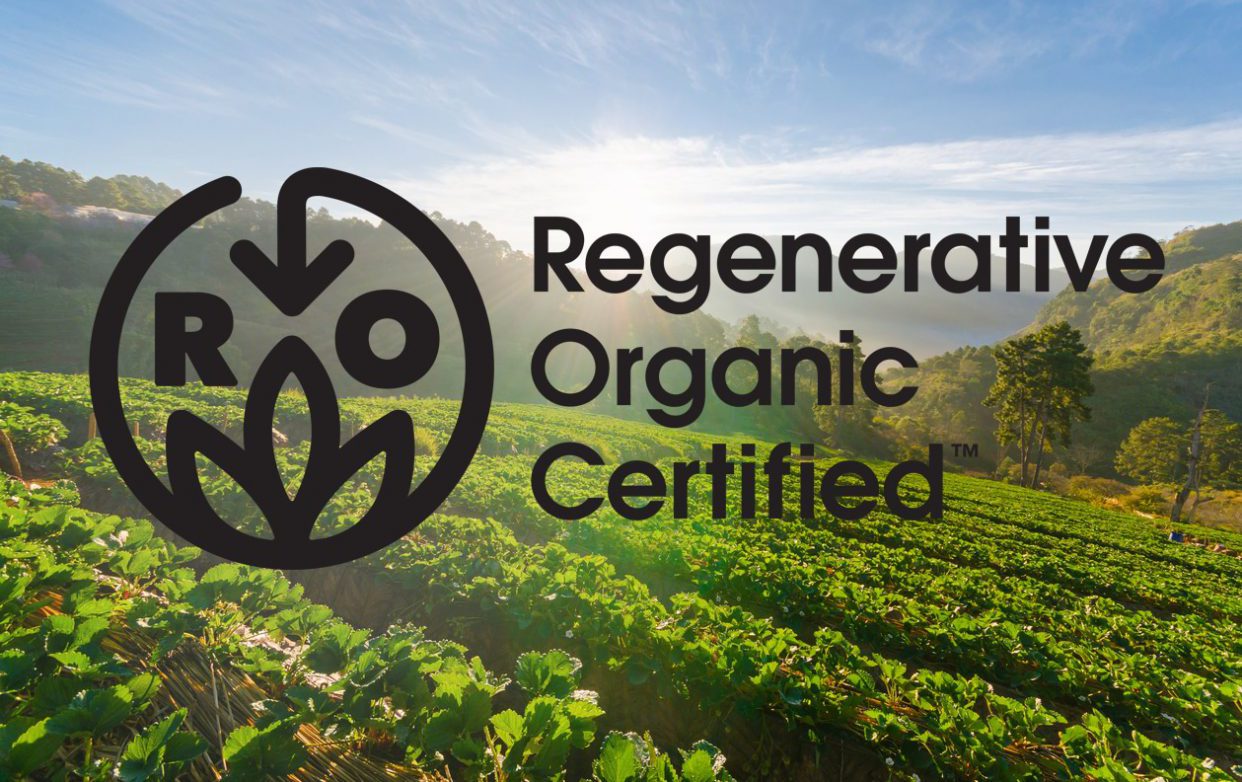In March of 2018, Movement Media, along with the PR teams of Patagonia and Rodale Insitute, working on behalf of the Regenerative Organic Alliance, a diverse coalition of organizations and businesses led by Rodale Institute as board chair and spearheaded by Dr. Bronner’s and Patagonia in the areas of farming, ranching, soil health, animal welfare, and farmer and worker fairness, announced the unveiling of the Regenerative Organic Certification (ROC), at industry trade show, Natural Products Expo West.
[arve url=”https://youtu.be/a0OZi44FLtM” /]
ROC is a holistic agriculture certification structure that encompasses robust requirements that uphold three pillars: soil health and ecological land management, pasture-based animal welfare, and fairness for farmers and workers. It was created to model an ecological and ethical system for agricultural production that addresses the problems of factory farming, climate change, and economic injustice, locally and globally. The following objectives are at the core of ROC:
- Increase soil organic matter over time and sequester atmospheric carbon in soil, which at a global scale can help mitigate climate change.
- Model high-bar pasture-based animal welfare.
- Provide economic stability and fairness for farmers, ranchers and workers.
- Create resilient regional ecosystems and communities.
The USDA organic standard is the bedrock of the ROC: Only products that are certified under the USDA organic program are eligible to meet the Regenerative Organic Certified criteria. With the requirement that farms achieve organic certification as a baseline, the Regenerative Organic Certified standard addresses next-level soil health and also adds in requirements for animal welfare and farm labor. With ROC, consumers will know that they are buying a product that addresses the environmental impacts of agriculture, animal treatment and fair and safe working conditions for farmers and farm workers. Also, since regenerative farming practices will enhance carbon sequestration, they will also be supporting the fight to mitigate climate change.
“Industrial agriculture and the factory farming of animals are top contributors to climate change, but these are also two practices that we can comprehensively improve through specific ecological and ethical approaches to farming. And that model, regenerative organic agriculture will bring real, immediate results,” said David Bronner, Cosmic Engagement Officer (CEO) of Dr. Bronner’s. “It’s imperative we act now to mitigate climate change. We need to shift our food production system to make regenerative organic agriculture the new model, both locally and globally.”
Regenerative Organic Certification was created with the intent for the standard to become adopted by companies and producers on a broad scale. There is enthusiastic interest from other brands in the food, fiber, and Natural Products Industry to join this effort. The certification is open to anyone in any industry to adopt including brands, farmers, ranchers and certain manufacturing facilities. Pilot audits will launch in the coming months with a small group of certifiers and producers to understand how the ROC standards can be implemented at the farm and ranch level, with the goal of having Regenerative Organic Certified products appearing on shelves within the next two years.
“At Patagonia, we are no strangers to leading big shifts and marketing them to customers. We know what it takes to shift supply chains and launch new certifications,” notes Rose Marcario, Patagonia CEO. “Today, we are determined to help lead another big shift with regenerative organic agriculture because the future of the planet is at stake. The new certification for regenerative organic agriculture will set a high bar for brands, provide guidance to consumers and take this urgently needed movement to the next level.”
Regenerative Organic Certification was created by a group of companies and organizations now working together under the name, the Regenerative Organic Alliance. Led by Rodale Institute, and spearheaded by Dr. Bronner’s and Patagonia, other founding members of the certification include: Compassion in World Farming, Demeter, Fair World Project, Grain Place Foods, Maple Hill Creamery, and White Oak Pastures. This non-profit has been established to continuously review and update the certification guidelines. The Regenerative Organic Alliance is made up of experts in farming, ranching, soil health, animal welfare, and farmer and worker fairness, and will regularly reevaluate certification guidelines and update the certification, as necessary.
“For 70 years, Rodale Institute has been using science and data to showcase organic agriculture’s ability to make positive change in the world,” said Jeff Moyer, Executive Director, Rodale Institute. “Farming can either create some of the world’s greatest challenges or solve them. Regenerative organic agriculture is our opportunity to solve them. It’s farming like more than yields and profit matter. That healthy soil, clean air, and water are just as important. That people and communities matter. It’s farming like we don’t just need to feed people for the next 100 years, but forever.”
Watch a video of the 2018 Natural Products Expo West panel discussion that announced the standard below.
[arve url=”https://www.youtube.com/watch?v=8WQUmg7ir8k” /]
To learn more about the Regenerative Organic Certification standard, please visit: https://regenorganic.org/.

